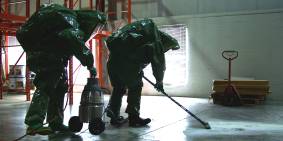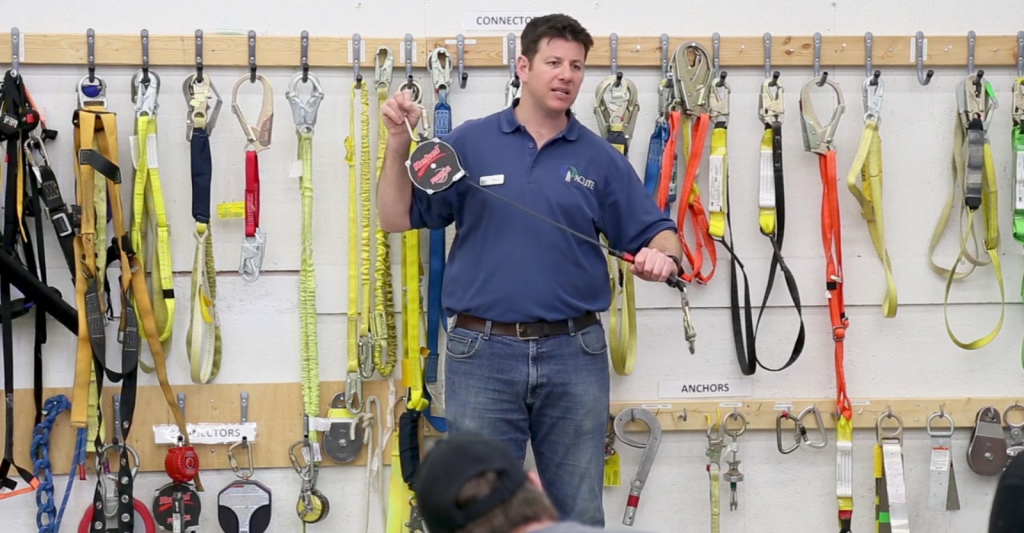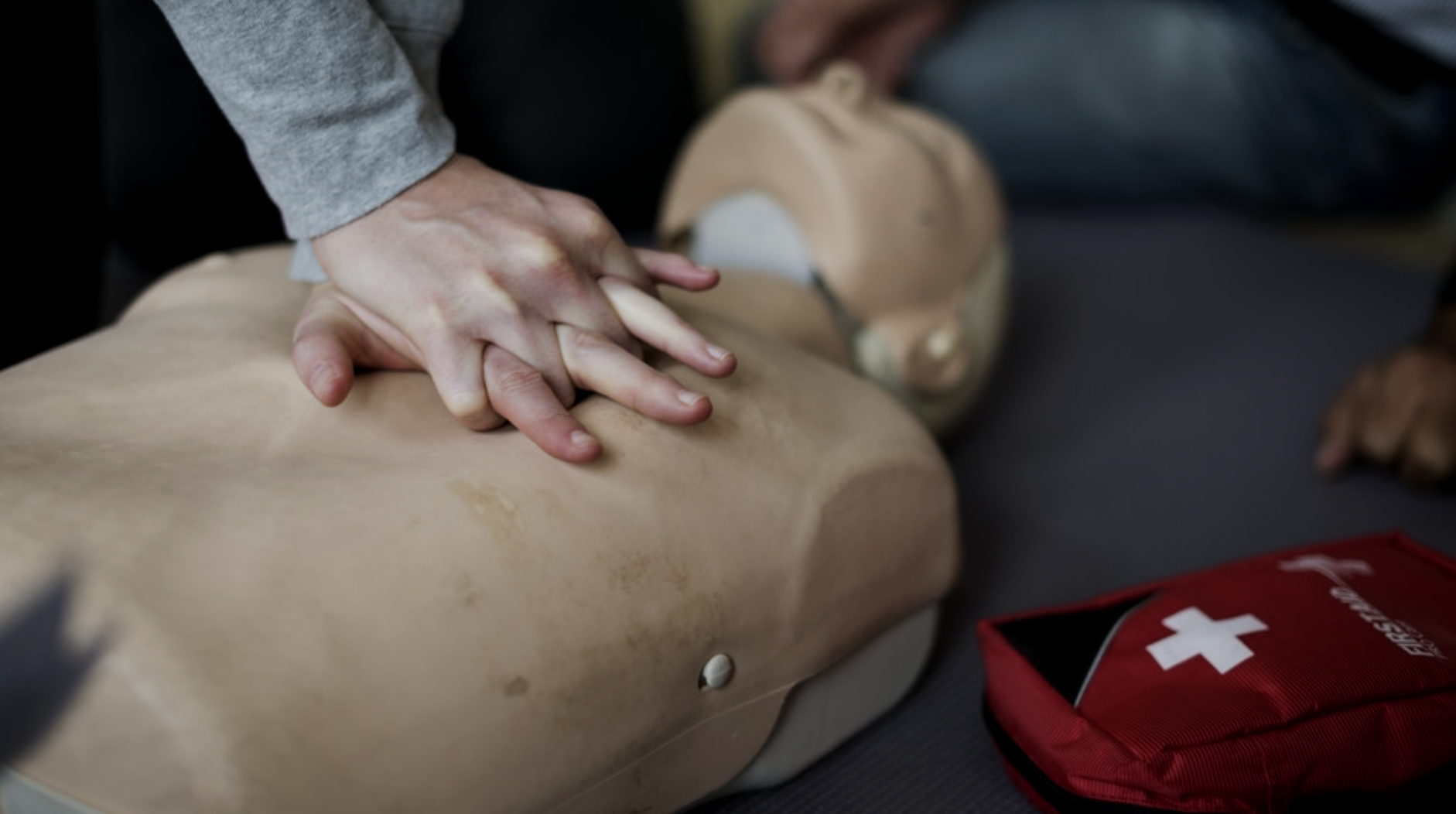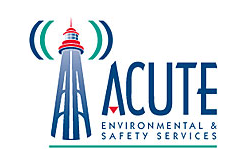The industrial environment can be a hub of productivity, but it also comes with inherent risks. Whether you’re a seasoned worker or a new hire, prioritizing industrial safety is paramount. This article will discuss various aspects of industrial safety and the training needed to handle and prevent potential workplace incidents.
Go ahead and click on the following links to jump to the next sections as needed.
- Do you know your escape routes in case of fire?
- Do you know how to handle hazardous materials?
- Do you know how to dispose of hazardous waste?
- Do you know how to use equipment properly?
- Do you know what to do in case of an injury or emergency?
Do you want to learn more about industrial safety concerns and the training needed? ACUTE trainers have over 200 years of combined experience in delivering accredited courses. Contact us today to learn about our training and upcoming courses.
What do you know about industrial safety in the workplace?

Working in an industrial setting can be an exciting and high-paced environment environment. However, if you don’t have the proper knowledge and training, it can easily become a dangerous place to work with accidents resulting in serious injury or even death. Here are some industrial safety aspects you need to recognize.
1. Do you know your escape routes in case of fire?
Imagine a fire erupting – do you know exactly where the nearest escape route is, and can you navigate it safely in an emergency? Employers must ensure clear signage and regular evacuation drills. Workers, familiarize yourself with all exits and emergency procedures.
- All exits in the building should be marked and unobstructed.
- There should be multiple escape routes in case the main one is obstructed.
- You need to be aware of your designated meetup points and proceed there immediately.
- You should also know where all of the fire extinguishers are and learn more to properly use them.
One of the best ways to avoid fires is to have HAZWOPER Training. At ACUTE we offer:
40-Hour HAZWOPER: This training program meets the requirements of the OSHA HAZWOPER standard (29CFR 1910.120). Learn more here.
8-Hour HAZWOPER: After the initial 40-hour HAZWOPER training requirement has been met, workers needing to maintain certification under the HAZWOPER standard must take this refresher course. This training meets the requirements outlined in OSHA 29 CFR 1910.120 for 8 (eight) hours of annual refresher training.
Call ACUTE for more details.

Knowing your escape route is a crucial part of industrial safety.
2. Do you know how to handle hazardous materials?
Many industrial settings involve potentially hazardous materials. Understanding proper handling procedures is a part of industrial safety knowledge.
The Workplace Hazardous Materials Information System (WHMIS) is Canada’s hazard communication standard. This means you must know and receive training in:
- How to identify and classify hazardous materials. This system uses pictograms and hazard statements to clearly communicate the dangers.
- How to properly label and understand containers of hazardous materials according to WHMIS classification.
- Where to find and read the Safety Data Sheets (SDS) which outline the specific hazards of a product, safe handling procedures, first-aid measures and disposal information.
It is your employer’s responsibility to ensure you receive the proper education in these procedures. ACUTE offers WHMIS 2015 (2015), mandatory training for any employee who works with or has the potential of exposure to hazardous products in the workplace.

If you work with hazardous materials, you need to know and understand these symbols.
3. Do you know how to dispose of hazardous waste?
Hazardous material spills pose a serious threat in many work environments, and a prompt and effective response is an essential part of industrial safety. Here’s how to minimize risk and ensure everyone’s safety by knowing about:
- Chemical spills, including acids, bases, solvents, or other hazardous liquids.
- Mercury spills which is a highly toxic metal that can vaporize at room temperature.
- Biological spills involving blood, bodily fluids, or other materials potentially containing infectious agents.
Improper disposal of hazardous waste can pose serious environmental and health risks. Workers need to be trained on safe handling and segregation of waste, while employers must ensure proper disposal practices are followed.
At ACUTE you can take the Spill Response training course to cover the legislative requirements and measures for spill reporting and cleanup.

Knowing how to properly dispose of hazardous materials is another component of industrial safety.
4. Do you know how to use equipment properly?
Another component of industrial safety in your workplace is knowing how to properly use the equipment. Industrial equipment comes with specific operating procedures to minimize accidents. This equipment could include:
- Operating a lift truck
- Elevating work platforms such as a scissor lift or boom lift
- Scaffolding and ladders
- Working at heights
Employers must provide thorough training on proper use and maintenance, while workers should never operate equipment beyond their training or without authorization. ACUTE provides the following training courses.
Lift Truck Operator: During this eight-hour training program, participants will be educated on how to safely operate a lift truck.
Elevating Work Platforms: This eight-hour course prepares operators for the safe use of EWPs.
Scaffolding and Ladders: This program focuses on safe practices when using scaffolds as work platforms.
Working at Heights: This full-day course is geared towards anyone who may be exposed to fall hazards while working.

Learn how to properly operate equipment with the required training courses.
5. Do you know what to do in case of an injury or emergency?
Knowing how to react in case of an injury or other emergency is vital for industry safety. Employers must have a clear emergency action plan in place, including first-aid procedures and emergency contact information. Here’s what you should know:
- Every second counts and knowing how to react appropriately can make a critical difference in minimizing injury, preventing further danger and ensuring the safety of yourself and others.
- You should also stay calm under pressure and having the necessary knowledge and training allows you to react effectively without succumbing to panic.
- Depending on the situation, you might need to take charge and initiate emergency procedures, or follow instructions from designated responders.
One of the best ways to prepare for an injury or emergency is to be properly trained. ACUTE offers the Standard First Aid/CPR/AED course which focuses on training participants with the necessary skills and knowledge to effectively handle a variety of emergencies

Knowing how to quickly respond to an emergency saves precious time and lives.
Why choose ACUTE for your industrial safety training?

We provide comprehensive health and safety training, rescue services and consulting services. Our staff has over 200 years of combined experience, and offers more than theoretical or abstract ideas – we show you solutions.
Learn more about what we do to improve industrial safety – contact us now!

